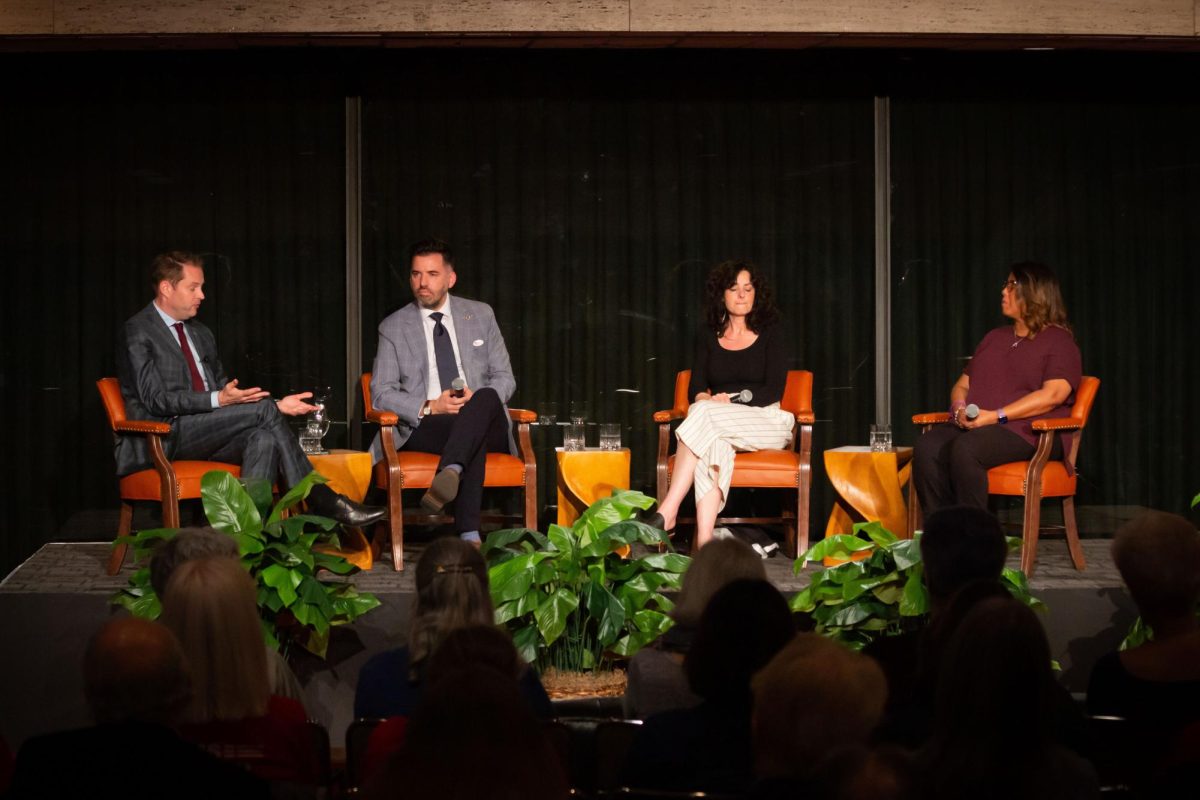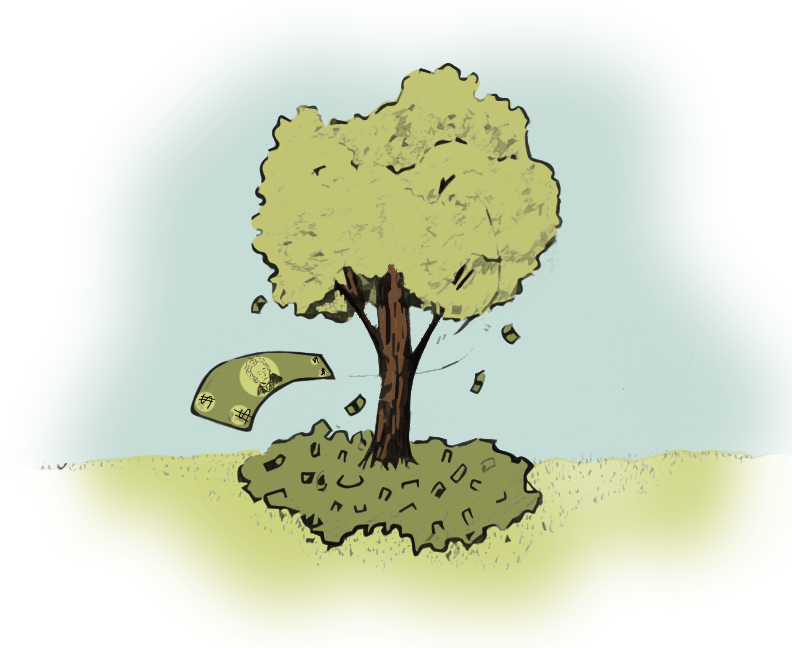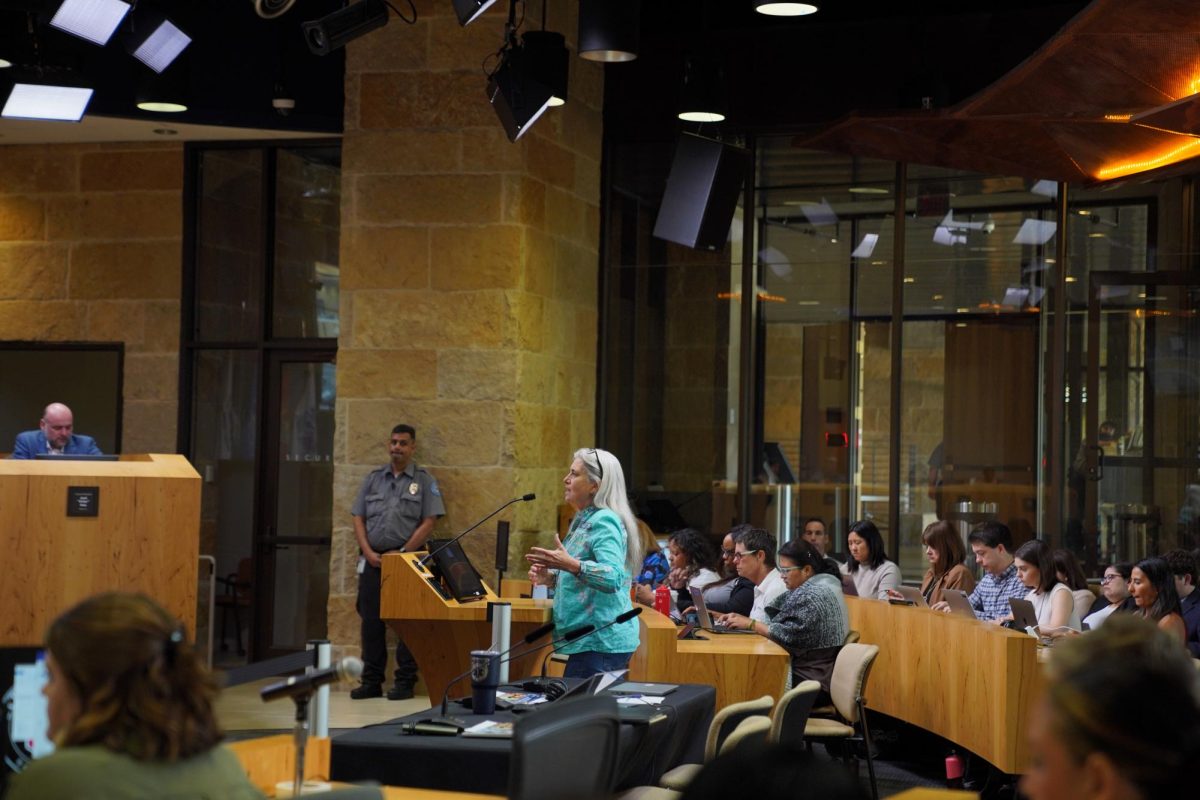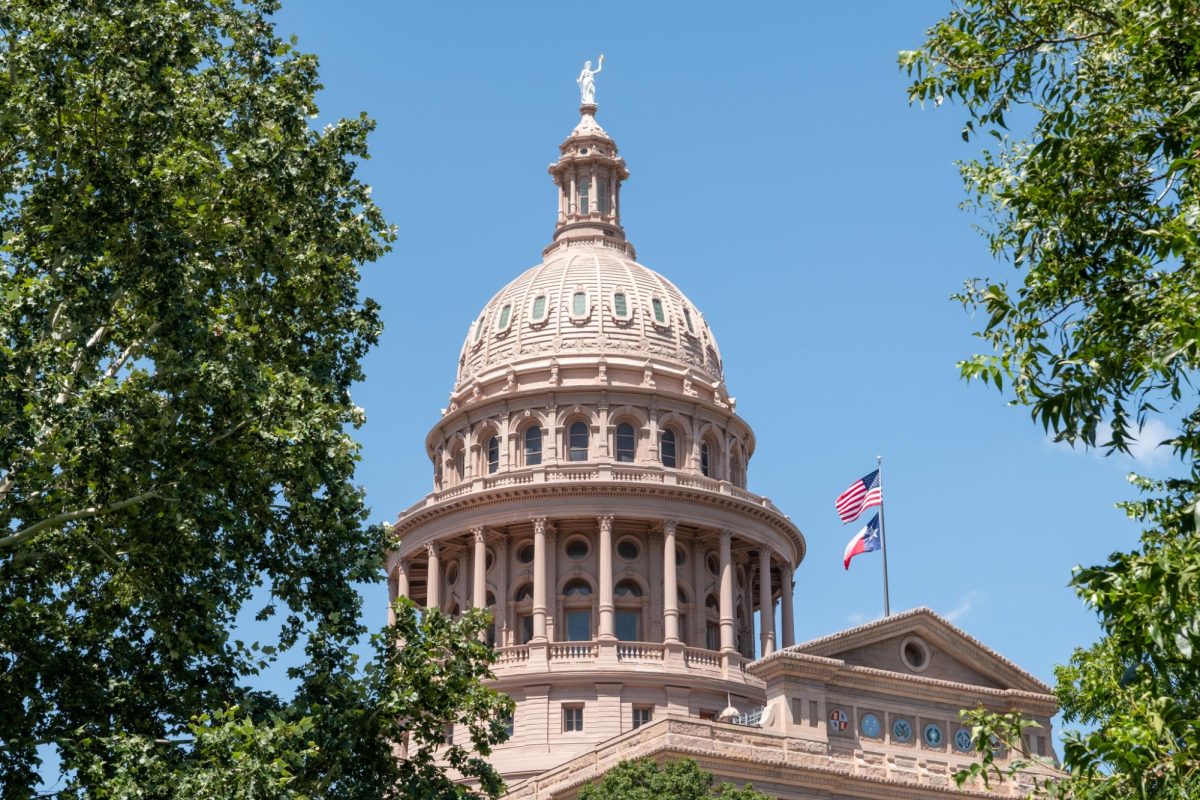Community members ready for change gathered Tuesday for a panel discussion hosted by the LBJ Future Forum about community action in the wake of gun violence.
Jamal Alsaffar, lead attorney for families following the 2017 Sutherland Springs shooting and 2022 elementary school shooting in Uvalde; Nicole Golden, executive director of public safety nonprofit Texas Gun Sense; and Jill Henderson, founder and president of support group the Bakari Foundation, joined moderator Tony Plohetski, an investigative reporter for the Austin-American Statesman and KVUE, to offer perspectives on the gun violence crisis in America.
Golden said she sees a problem with the disconnect between Texas voters and state lawmakers at the Capitol. The majority of Texans support common sense gun laws, she said, citing a poll that revealed that 76% of Texans are in favor of raising the minimum age to purchase firearms from 18 to 21. However, legislation to do so never made it to the Texas House of Representatives for a vote last May.
“People don’t have a voice in this issue, even though they’re being impacted all the time,” Golden said during the panel.
Henderson said she founded the Bakari Foundation because an increasing number of communities are affected by gun violence each day. After losing two sons to violence, Henderson said she was compelled to create a way beyond therapy to help families and communities heal together.
“After the news goes away, we still have to deal with this,” Henderson said during the panel. “Families are still broken.”
As an attorney, Alsaffar said he approaches action for change through the justice system.
“We have a corrupt and powerful system that has been allowed to tell these lawmakers what to do,” Alsaffar said during the panel in reference to the National Rifle Association. “Lawsuits in our judicial branch have to step in when our legislative and executive branch can’t get it done.”
Alsaffar said he’s seen the court system working toward change firsthand. He said when he worked on the Sutherland Springs case, a Republican judge in a Texas federal court found that background checks work as a legal principle.
“I think one of the most powerful things in the world is to get powerful people under oath because that is the thing that scares them the most,” Alsaffar said. “When you get them under oath and you have that subpoena power, you find out the truth and there’s no way to avoid it.”
When it comes to both recovering from incidents of violence and seeking to prevent them, Henderson said community conversation, sufficient support mechanisms, addressing mental health and increasing human empathy and understanding are all necessary.
“We just really need to be more loving, more encouraging and embrace each other where we are,” Henderson said during the panel. “Not judge each other, but have open conversations and be seen.”
Despite the continued prevalence of gun violence in the United States, the panelists said they remain optimistic for change through the power of the community.
“You just have to step out of the computer, the comment sections and the social media pages and take one little step,” Alsaffar said. “It’s doing a little bit of an uncomfortable thing to step out of our home and step into the fight. If you will do that, that’s how we get these things done.”
Editor’s Note: This story was corrected to fix the spelling of an organization. The Texan regrets this error.















